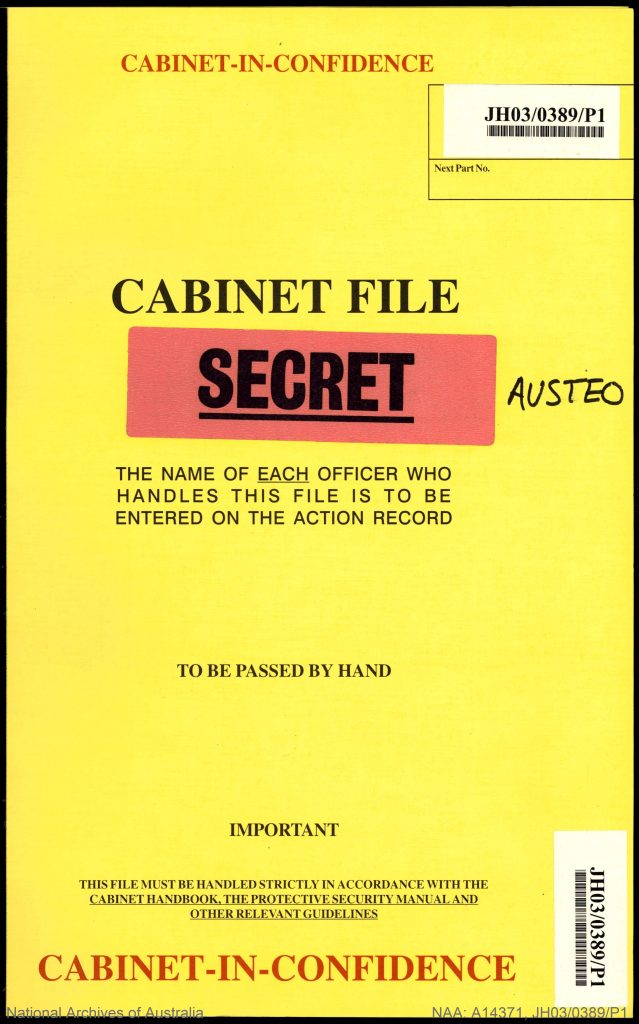
Declassified Cabinet documents reveal:
By Sasha Uzunov
Australian federal government cabinet documents on the 2003 Iraq War, recently declassified by the National Archives of Australia, reveal the Defence Department was able to control the Australian media and largely silence opposition to Australia’s involvement in the controversial US war in Iraq.
A declassified cabinet document titled: “Defence review of lessons arising from Operations Bastille and Falconer” (Iraq War – Australian operations) and dated 30 October 2003 boasts:
“Defence’s strategy for managing the media and disseminating information on ADF [Australian Defence Force] involvement in Iraq was validated. Polling revealed that the Australian community felt that they received sufficient information about ADF activities and that the ADF’s performance was seen in positive terms.”
Australia went to war in March 2003 alongside the United States and the United Kingdom over claims that Iraqi dictator had weapons of mass destruction, which turned out to be false, and posed a danger to global security.
A senior ranking Australian intelligence analyst Mr Andrew Wilkie resigned from his position with the Office of National Assessments (ONA) on the eve of the 2003 Iraq war, citing there was no justification for the war.
He told Australia’s national state broadcaster the ABC:
“I’m convinced a war against Iraq at this time would be wrong. For a start, Iraq does not pose a security threat to the US, or to the UK or Australia, or to any other country, at this point in time.”
The declassified 30 October 2003 cabinet document suggests the Australian government was able to mute or downplay opposition to the war through media spin, despite high profile Wilkie’s resignation.